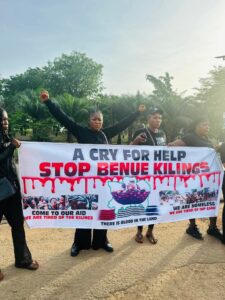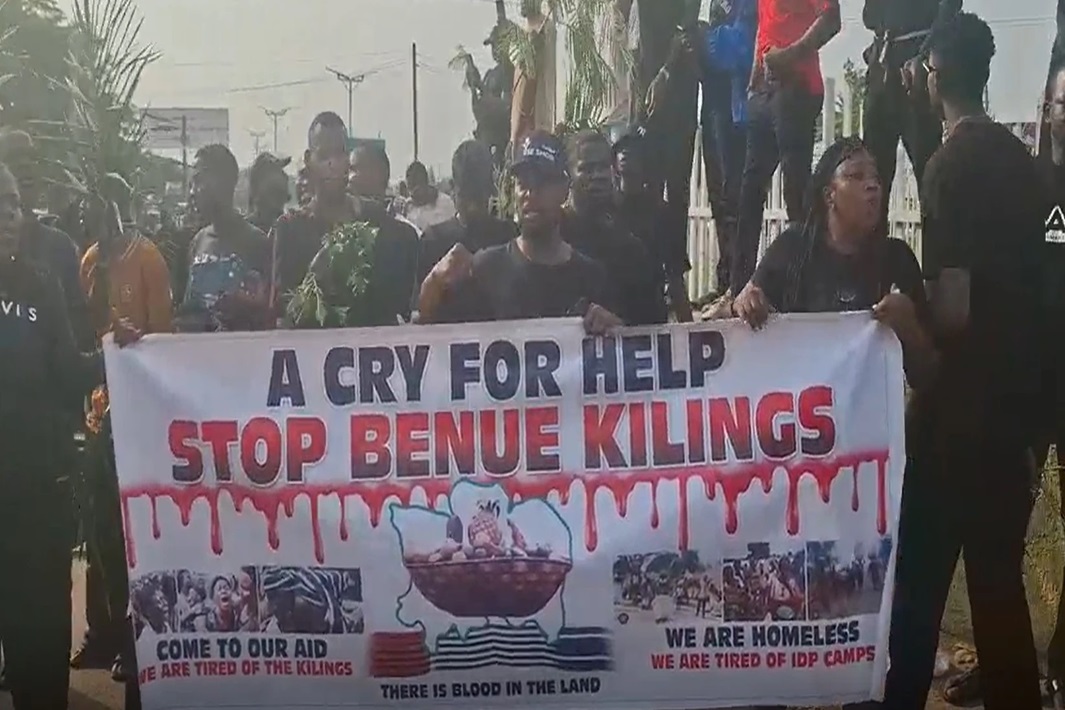By Paschal Norbert
ABUJA, JUNE 26, 2025 (CISA) – The Catholic Bishops of Nigeria are raising a collective voice against the resurgence of brutal killings in Benue State and other parts of Nigeria, an unfolding tragedy that has even drawn the attention of Pope Leo. The bishops are now calling all Catholics and people of goodwill to a national nine-day prayer campaign for peace, healing, and respect for the dignity of human life.
In a fervent appeal letter dated June 19, 2025 and titled “A National Call for Prayer and Solidarity”, the bishops condemned the renewed wave of killings in Benue State and other regions, lamenting that despite their earlier appeals, most recently in a statement dated June 6, 2025,blood continues to be spilled with little regard for human life.
“It is profoundly heartbreaking,” the bishops write, “that less than two weeks later, we are compelled to speak out again.” They described the violence as one that “continues to wound our collective spirit,” calling for a united spiritual response across Nigeria to counter the violence that has left communities ravaged and hearts broken.
Benue State has become synonymous with bloodshed in recent weeks. Armed assailants reportedly stormed villages, executing scores of civilians, including women and children, in what has been described by survivors as an “unprovoked massacre.” Entire families have been wiped out, homes razed, and lives shattered. The brutality has not gone unnoticed beyond Nigeria’s borders, with Pope Leo himself reportedly moved by the carnage. In a recent statement, he decried the killings as a “terrible massacre” and called for urgent global attention to the unending violence plaguing rural communities in Nigeria.
“I am thinking especially of the rural Christian communities of Benue State who have been relentless victims of violence,” the Pope said.
In their communiqué, the prelates commended the courage of individuals and communities who continue to speak against the violence and echoed their brother bishops who have already called for prayers. The bishops are now urging all Catholics to begin a Nine-Day Prayer starting Saturday, June 21, 2025. Each day will include the Rosary and the “Prayer for Nigeria in Distress,” culminating in a nationwide Mass on Sunday, June 29, the Solemnity of Saints Peter and Paul.
This Mass, the bishops said, is to be offered in all parishes for peace, the repose of the dead, the healing of the wounded, and the conversion of the perpetrators of “barbaric massacre of unarmed fellow citizens.”
In a message to the victims, the bishops assured affected communities that the Church stands with them. As a tangible expression of this solidarity, the Catholic Bishops Conference of Nigeria (CBCN) has already delivered emergency assistance and will soon dispatch a delegation to personally visit the grieving.
“We ardently pray that the day will soon come when such sorrowful interventions will no longer be necessary,” the bishops prayed, “and our voices may instead rise in thanksgiving for a land healed and at peace.”
Benue: A State under Siege amid Deadly Herders-Farmers Conflict
Benue State, under the leadership of Governor Rev Fr Hyacinth Iormem Alia, a Catholic priest turned politician, is once again in the global spotlight. A fresh wave of bloodshed has struck the state, which sits at the heart of Nigeria’s volatile Middle Belt, reigniting a long-standing and deadly conflict between nomadic herders and sedentary farming communities.
For years, this fertile region has been a flashpoint for clashes that have left thousands dead and entire villages emptied. At the heart of the violence is a protracted dispute between mostly Christian farmers and nomadic Fulani herders. The herders, who migrate with their cattle in search of grazing land and water, often clash with farmers who accuse them of trampling crops, polluting water sources, and, increasingly, of launching violent attacks on villages. While many herders claim to carry arms for protection against cattle rustlers, these weapons have often been turned on civilians, deepening the humanitarian crisis in the region.

In the latest series of attacks between June 8 and 14, at least 218 people were killed and over 6,000 displaced in coordinated raids on predominantly Christian communities in Benue. The most devastating of these took place on June 13 at a displacement camp in Yelewata, which was home to around 400 people. According to eyewitness reports, the assailants, believed to be Fulani militants, were initially repelled by military forces but regrouped and launched a second assault on a nearby market area where many internally displaced persons (IDPs) had taken shelter.
The militants reportedly set fire to storage buildings and attacked civilians with guns and machetes. Over 200 people were killed in that single incident, with only five survivors left injured. Earlier the same day, six civilians and three soldiers were killed in separate but related incidents across the region.
The horror has sparked widespread outrage and despair. On June 15, thousands of residents took to the streets of Makurdi, the state capital, demanding justice and security. Protesters carried placards and chanted slogans like “Stop Benue Killings!” only to be met with police tear gas.
Benue’s crisis is part of a broader tragedy engulfing Nigeria’s Middle Belt, a region marked by its ethnic and religious diversity, and often caught in the crossfire of identity-based conflicts. While northern Nigeria is predominantly Muslim and Hausa, the Middle Belt is a cultural crossroads where Christians and Muslims have historically coexisted. But this delicate balance has been tested by environmental stress, competition over land, and the emergence of extremist elements among armed herder groups.
Though not all Fulani are involved in the violence, some factions have embraced Islamist ideologies, fueling fears that the conflict is no longer just about land and resources, but also about faith and survival.
